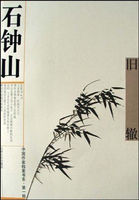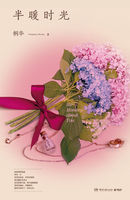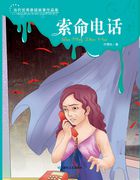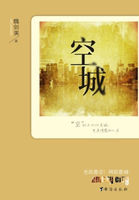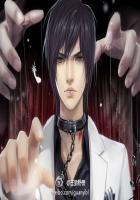THE first objects that assume a distinct presence before me, as I look far back, into the blank of my infancy, are my mother with her pretty hair and youthful shape, and Peggotty with no shape at all, and eyes so dark that they seemed to darken their whole neighbourhood in her face, and cheeks and arms so hard and red that I wondered the birds didn't peck her in preference to apples.
I believe I can remember these two at a little distance apart, dwarfed to my sight by stooping down or kneeling on the floor, and I going unsteadily from the one to the other. I have an impression on my mind which I cannot distinguish from actual remembrance, of the touch of Peggotty's forefinger as she used to hold it out to me, and of its being roughened by needlework, like a pocket nutmeg-grater.
This may be fancy, though I think the memory of most of us can go farther back into such times than many of us suppose; just as I believe the power of observation in numbers of very young children to be quite wonderful for its closeness and accuracy. Indeed, I think that most grown men who are remarkable in this respect, may with greater propriety be said not to have lost the faculty, than to have acquired it; the rather, as I generally observe such men to retain a certain freshness, and gentleness, and capacity of being pleased, which are also an inheritance they have preserved from their childhood.
I might have a misgiving that I am'meandering'in stopping to say this, but that it brings me to remark that I build these conclusions, in part upon my own experience of myself; and if it should appear from anything I may set down in this narrative that I was a child of close observation, or that as a man I have a strong memory of my childhood, I undoubtedly lay claim to both of these characteristics.
Looking back, as I was saying, into the blank of my infancy, the first objects I can remember as standing out by themselves from a confusion of things, are my mother and Peggotty. What else do I remember? Let me see.
There comes out of the cloud, our house—not new to me, but quite familiar, in its earliest remembrance. On the ground-floor is Peggotty's kitchen, opening into a back yard; with a pigeon-house on a pole, in the centre, without any pigeons in it; a great dog-kennel in a corner, without any dog; and a quantity of fowls that look terribly tall to me, walking about, in a menacing and ferocious manner. There is one cock who gets upon a post to crow, and seems to take particular notice of me as I look at him through the kitchen window, who makes me shiver, he is so fierce. Of the geese outside the side-gate who come waddling after me with their long necks stretched out when I go that way, I dream at night: as a man environed by wild beasts might dream of lions.
Here is a long passage—what an enormous perspective I make of it!—leading from Peggotty's kitchen to the front door. A dark store-room opens out of it, and that is a place to be run past at night; for I don't know what may be among those tubs and jars and old tea-chests, when there is nobody in there with a dimly-burning light, letting a mouldy air come out of the door, in which there is the smell of soap, pickles, pepper, candles, and coffee, all at one whiff. Then there are the two parlours: the parlour in which we sit of an evening, my mother and I and Peggotty—for Peggotty is quite our companion, when her work is done and we are alone—and the best parlour where we sit on a Sunday; grandly, but not so comfortably. There is something of a doleful air about that room to me, for Peggotty has told me—I don't know when, but apparently ages ago—about my father's funeral, and the company having their black cloaks put on. One Sunday night my mother reads to Peggotty and me in there, how Lazarus was raised up from the dead. And I am so frightened that they are afterwards obliged to take me out of bed, and show me the quiet churchyard out of the bedroom window, with the dead all lying in their graves at rest, below the solemn moon.
There is nothing half so green that I know anywhere, as the grass of that churchyard; nothing half so shady as its trees; nothing half so quiet as its tombstones. The sheep are feeding there, when I kneel up, early in the morning, in my little bed in a closet within my mother's room, to look out at it; and I see the red light shining on the sun-dial, and think within myself,'Is the sun-dial glad, I wonder, that it can tell the time again?'
Here is our pew in the church. What a high-backed pew! With a window near it, out of which our house can be seen, and IS seen many times during the morning's service, by Peggotty, who likes to make herself as sure as she can that it's not being robbed, or is not in flames. But though Peggotty's eye wanders, she is much offended if mine does, and frowns to me, as I stand upon the seat, that I am to look at the clergyman. But I can't always look at him—I know him without that white thing on, and I am afraid of his wondering why I stare so, and perhaps stopping the service to inquire—and what am I to do? It's a dreadful thing to gape, but I must do something. I look at my mother, but she pretends not to see me. I look at a boy in the aisle, and he makes faces at me. I look at the sunlight coming in at the open door through the porch, and there I see a stray sheep—I don't mean a sinner, but mutton—half making up his mind to come into the church. I feel that if I looked at him any longer, I might be tempted to say something out loud; and what would become of me then! I look up at the monumental tablets on the wall, and try to think of Mr. Bodgers late of this parish, and what the feelings of Mrs. Bodgers must have been, when affliction sore, long time Mr. Bodgers bore, and physicians were in vain. I wonder whether they called in Mr. Chillip, and he was in vain; and if so, how he likes to be reminded of it once a week. I look from Mr. Chillip, in his Sunday neckcloth, to the pulpit; and think what a good place it would be to play in, and what a castle it would make, with another boy coming up the stairs to attack it, and having the velvet cushion with the tassels thrown down on his head. In time my eyes gradually shut up; and, from seeming to hear the clergyman singing a drowsy song in the heat, I hear nothing, until I fall off the seat with a crash, and am taken out, more dead than alive, by Peggotty.
And now I see the outside of our house, with the latticed bedroom-windows standing open to let in the sweet-smelling air, and the ragged old rooks'-nests still dangling in the elm-trees at the bottom of the front garden. Now I am in the garden at the back, beyond the yard where the empty pigeon-house and dog-kennel are—a very preserve of butterflies, as I remember it, with a high fence, and a gate and padlock; where the fruit clusters on the trees, riper and richer than fruit has ever been since, in any other garden, and where my mother gathers some in a basket, while I stand by, bolting furtive gooseberries, and trying to look unmoved. A great wind rises, and the summer is gone in a moment. We are playing in the winter twilight, dancing about the parlour. When my mother is out of breath and rests herself in an elbow-chair, I watch her winding her bright curls round her fingers, and straitening her waist, and nobody knows better than I do that she likes to look so well, and is proud of being so pretty.
That is among my very earliest impressions. That, and a sense that we were both a little afraid of Peggotty, and submitted ourselves in most things to her direction, were among the first opinions—if they may be so called—that I ever derived from what I saw.
Peggotty and I were sitting one night by the parlour fire, alone. I had been reading to Peggotty about crocodiles. I must have read very perspicuously, or the poor soul must have been deeply interested, for I remember she had a cloudy impression, after I had done, that they were a sort of vegetable. I was tired of reading, and dead sleepy; but having leave, as a high treat, to sit up until my mother came home from spending the evening at a neighbour's, I would rather have died upon my post (of course) than have gone to bed. I had reached that stage of sleepiness when Peggotty seemed to swell and grow immensely large. I propped my eyelids open with my two forefingers, and looked perseveringly at her as she sat at work; at the little bit of wax-candle she kept for her thread—how old it looked, being so wrinkled in all directions!—at the little house with a thatched roof, where the yard-measure lived; at her work-box with a sliding lid, with a view of St. Paul's Cathedral (with a pink dome) painted on the top; at the brass thimble on her finger; at herself, whom I thought lovely. I felt so sleepy, that I knew if I lost sight of anything for a moment, I was gone.
'Peggotty,'says I, suddenly,'were you ever married?'
'Lord, Master Davy,'replied Peggotty.'What's put marriage in your head?'
She answered with such a start, that it quite awoke me. And then she stopped in her work, and looked at me, with her needle drawn out to its thread's length.
'But WERE you ever married, Peggotty?'says I.'You are a very handsome woman, an't you?'
I thought her in a different style from my mother, certainly; but of another school of beauty, I considered her a perfect example. There was a red velvet footstool in the best parlour, on which my mother had painted a nosegay. The ground-work of that stool, and Peggotty's complexion appeared to me to be one and the same thing. The stool was smooth, and Peggotty was rough, but that made no difference.
'Me handsome, Davy!'said Peggotty.'Lawk, no, my dear! But what put marriage in your head?'
'I don't know!—You mustn't marry more than one person at a time, may you, Peggotty?'
'Certainly not,'says Peggotty, with the promptest decision.
'But if you marry a person, and the person dies, why then you may marry another person, mayn't you, Peggotty?'
'YOU MAY,'says Peggotty,'if you choose, my dear. That's a matter of opinion.'
'But what is your opinion, Peggotty?'said I.
I asked her, and looked curiously at her, because she looked so curiously at me.
'My opinion is,'said Peggotty, taking her eyes from me, after a little indecision and going on with her work,'that I never was married myself, Master Davy, and that I don't expect to be. That's all I know about the subject.'
'You an't cross, I suppose, Peggotty, are you?'said I, after sitting quiet for a minute.
I really thought she was, she had been so short with me; but I was quite mistaken: for she laid aside her work (which was a stocking of her own), and opening her arms wide, took my curly head within them, and gave it a good squeeze. I know it was a good squeeze, because, being very plump, whenever she made any little exertion after she was dressed, some of the buttons on the back of her gown flew off. And I recollect two bursting to the opposite side of the parlour, while she was hugging me.
'Now let me hear some more about the Crorkindills,'said Peggotty, who was not quite right in the name yet,'for I an't heard half enough.'
I couldn't quite understand why Peggotty looked so queer, or why she was so ready to go back to the crocodiles. However, we returned to those monsters, with fresh wakefulness on my part, and we left their eggs in the sand for the sun to hatch; and we ran away from them, and baffled them by constantly turning, which they were unable to do quickly, on account of their unwieldy make; and we went into the water after them, as natives, and put sharp pieces of timber down their throats; and in short we ran the whole crocodile gauntlet. I did, at least; but I had my doubts of Peggotty, who was thoughtfully sticking her needle into various parts of her face and arms, all the time.
We had exhausted the crocodiles, and begun with the alligators, when the garden-bell rang. We went out to the door; and there was my mother, looking unusually pretty, I thought, and with her a gentleman with beautiful black hair and whiskers, who had walked home with us from church last Sunday.
As my mother stooped down on the threshold to take me in her arms and kiss me, the gentleman said I was a more highly privileged little fellow than a monarch—or something like that; for my later understanding comes, I am sensible, to my aid here.
'What does that mean?'I asked him, over her shoulder.
He patted me on the head; but somehow, I didn't like him or his deep voice, and I was jealous that his hand should touch my mother's in touching me—which it did. I put it away, as well as I could.
'Oh, Davy!'remonstrated my mother.
'Dear boy!'said the gentleman.'I cannot wonder at his devotion!'
I never saw such a beautiful colour on my mother's face before. She gently chid me for being rude; and, keeping me close to her shawl, turned to thank the gentleman for taking so much trouble as to bring her home. She put out her hand to him as she spoke, and, as he met it with his own, she glanced, I thought, at me.
'Let us say“good night”, my fine boy,'said the gentleman, when he had bent his head—I saw him!—over my mother's little glove.
'Good night!'said I.
'Come! Let us be the best friends in the world!'said the gentleman, laughing.'Shake hands!'
My right hand was in my mother's left, so I gave him the other.
'Why, that's the Wrong hand, Davy!'laughed the gentleman.
My mother drew my right hand forward, but I was resolved, for my former reason, not to give it him, and I did not. I gave him the other, and he shook it heartily, and said I was a brave fellow, and went away.
At this minute I see him turn round in the garden, and give us a last look with his ill-omened black eyes, before the door was shut.
Peggotty, who had not said a word or moved a finger, secured the fastenings instantly, and we all went into the parlour. My mother, contrary to her usual habit, instead of coming to the elbow-chair by the fire, remained at the other end of the room, and sat singing to herself. —'Hope you have had a pleasant evening, ma'am,'said Peggotty, standing as stiff as a barrel in the centre of the room, with a candlestick in her hand.
'Much obliged to you, Peggotty,'returned my mother, in a cheerful voice,'I have had a VERY pleasant evening.'
'A stranger or so makes an agreeable change,'suggested Peggotty.
'A very agreeable change, indeed,'returned my mother.
Peggotty continuing to stand motionless in the middle of the room, and my mother resuming her singing, I fell asleep, though I was not so sound asleep but that I could hear voices, without hearing what they said. When I half awoke from this uncomfortable doze, I found Peggotty and my mother both in tears, and both talking.
'Not such a one as this, Mr. Copperfield wouldn't have liked,'said Peggotty.'That I say, and that I swear!'
'Good Heavens!'cried my mother,'you'll drive me mad! Was ever any poor girl so ill-used by her servants as I am! Why do I do myself the injustice of calling myself a girl? Have I never been married, Peggotty?'
'God knows you have, ma'am,'returned Peggotty.'Then, how can you dare,'said my mother—'you know I don't mean how can you dare, Peggotty, but how can you have the heart—to make me so uncomfortable and say such bitter things to me, when you are well aware that I haven't, out of this place, a single friend to turn to?'
'The more's the reason,'returned Peggotty,'for saying that it won't do. No! That it won't do. No! No price could make it do. No!'—I thought Peggotty would have thrown the candlestick away, she was so emphatic with it.
'How can you be so aggravating,'said my mother, shedding more tears than before,'as to talk in such an unjust manner! How can you go on as if it was all settled and arranged, Peggotty, when I tell you over and over again, you cruel thing, that beyond the commonest civilities nothing has passed! You talk of admiration. What am I to do? If people are so silly as to indulge the sentiment, is it my fault? What am I to do, I ask you? Would you wish me to shave my head and black my face, or disfigure myself with a burn, or a scald, or something of that sort? I dare say you would, Peggotty. I dare say you'd quite enjoy it.'
Peggotty seemed to take this aspersion very much to heart, I thought.
'And my dear boy,'cried my mother, coming to the elbow-chair in which I was, and caressing me,'my own little Davy! Is it to be hinted to me that I am wanting in affection for my precious treasure, the dearest little fellow that ever was!'
'Nobody never went and hinted no such a thing,'said Peggotty.
'You did, Peggotty!'returned my mother.'You know you did. What else was it possible to infer from what you said, you unkind creature, when you know as well as I do, that on his account only last quarter I wouldn't buy myself a new parasol, though that old green one is frayed the whole way up, and the fringe is perfectly mangy? You know it is, Peggotty. You can't deny it.'Then, turning affectionately to me, with her cheek against mine,'Am I a naughty mama to you, Davy? Am I a nasty, cruel, selfish, bad mama? Say I am, my child; say“yes”, dear boy, and Peggotty will love you; and Peggotty's love is a great deal better than mine, Davy. I don't love you at all, do I?'
At this, we all fell a-crying together. I think I was the loudest of the party, but I am sure we were all sincere about it. I was quite heart-broken myself, and am afraid that in the first transports of wounded tenderness I called Peggotty a'Beast'. That honest creature was in deep affliction, I remember, and must have become quite buttonless on the occasion; for a little volley of those explosives went off, when, after having made it up with my mother, she kneeled down by the elbow-chair, and made it up with me.
We went to bed greatly dejected. My sobs kept waking me, for a long time; and when one very strong sob quite hoisted me up in bed, I found my mother sitting on the coverlet, and leaning over me. I fell asleep in her arms, after that, and slept soundly.
Whether it was the following Sunday when I saw the gentleman again, or whether there was any greater lapse of time before he reappeared, I cannot recall. I don't profess to be clear about dates. But there he was, in church, and he walked home with us afterwards. He came in, too, to look at a famous geranium we had, in the parlour-window. It did not appear to me that he took much notice of it, but before he went he asked my mother to give him a bit of the blossom. She begged him to choose it for himself, but he refused to do that—I could not understand why—so she plucked it for him, and gave it into his hand. He said he would never, never part with it any more; and I thought he must be quite a fool not to know that it would fall to pieces in a day or two.
Peggotty began to be less with us, of an evening, than she had always been. My mother deferred to her very much—more than usual, it occurred to me—and we were all three excellent friends; still we were different from what we used to be, and were not so comfortable among ourselves. Sometimes I fancied that Peggotty perhaps objected to my mother's wearing all the pretty dresses she had in her drawers, or to her going so often to visit at that neighbour's; but I couldn't, to my satisfaction, make out how it was.
Gradually, I became used to seeing the gentleman with the black whiskers. I liked him no better than at first, and had the same uneasy jealousy of him; but if I had any reason for it beyond a child's instinctive dislike, and a general idea that Peggotty and I could make much of my mother without any help, it certainly was not THE reason that I might have found if I had been older. No such thing came into my mind, or near it. I could observe, in little pieces, as it were; but as to making a net of a number of these pieces, and catching anybody in it, that was, as yet, beyond me.
One autumn morning I was with my mother in the front garden, when Mr. Murdstone—I knew him by that name now—came by, on horseback. He reined up his horse to salute my mother, and said he was going to Lowestoft to see some friends who were there with a yacht, and merrily proposed to take me on the saddle before him if I would like the ride.
The air was so clear and pleasant, and the horse seemed to like the idea of the ride so much himself, as he stood snorting and pawing at the garden-gate, that I had a great desire to go. So I was sent upstairs to Peggotty to be made spruce; and in the meantime Mr. Murdstone dismounted, and, with his horse's bridle drawn over his arm, walked slowly up and down on the outer side of the sweetbriar fence, while my mother walked slowly up and down on the inner to keep him company. I recollect Peggotty and I peeping out at them from my little window; I recollect how closely they seemed to be examining the sweetbriar between them, as they strolled along; and how, from being in a perfectly angelic temper, Peggotty turned cross in a moment, and brushed my hair the wrong way, excessively hard.
Mr. Murdstone and I were soon off, and trotting along on the green turf by the side of the road. He held me quite easily with one arm, and I don't think I was restless usually; but I could not make up my mind to sit in front of him without turning my head sometimes, and looking up in his face. He had that kind of shallow black eye—I want a better word to express an eye that has no depth in it to be looked into—which, when it is abstracted, seems from some peculiarity of light to be disfigured, for a moment at a time, by a cast. Several times when I glanced at him, I observed that appearance with a sort of awe, and wondered what he was thinking about so closely. His hair and whiskers were blacker and thicker, looked at so near, than even I had given them credit for being. A squareness about the lower part of his face, and the dotted indication of the strong black beard he shaved close every day, reminded me of the wax-work that had travelled into our neighbourhood some half-a-year before. This, his regular eyebrows, and the rich white, and black, and brown, of his complexion—confound his complexion, and his memory!—made me think him, in spite of my misgivings, a very handsome man. I have no doubt that my poor dear mother thought him so too.
We went to an hotel by the sea, where two gentlemen were smoking cigars in a room by themselves. Each of them was lying on at least four chairs, and had a large rough jacket on. In a corner was a heap of coats and boat-cloaks, and a flag, all bundled up together.
They both rolled on to their feet in an untidy sort of manner, when we came in, and said,'Halloa, Murdstone! We thought you were dead!'
'Not yet,'said Mr. Murdstone.
'And who's this shaver?'said one of the gentlemen, taking hold of me.
'That's Davy,'returned Mr. Murdstone.
'Davy who?'said the gentleman.'Jones?'
'Copperfield,'said Mr. Murdstone.
'What! Bewitching Mrs. Copperfield's encumbrance?'cried the gentleman.'The pretty little widow?'
'Quinion,'said Mr. Murdstone,'take care, if you please. Somebody's sharp.'
'Who is?'asked the gentleman, laughing. I looked up, quickly; being curious to know.
'Only Brooks of Sheffield,'said Mr. Murdstone.
I was quite relieved to find that it was only Brooks of Sheffield; for, at first, I really thought it was I.
There seemed to be something very comical in the reputation of Mr. Brooks of Sheffield, for both the gentlemen laughed heartily when he was mentioned, and Mr. Murdstone was a good deal amused also. After some laughing, the gentleman whom he had called Quinion, said:
'And what is the opinion of Brooks of Sheffield, in reference to the projected business?'
'Why, I don't know that Brooks understands much about it at present,'replied Mr. Murdstone;'but he is not generally favourable, I believe.'
There was more laughter at this, and Mr. Quinion said he would ring the bell for some sherry in which to drink to Brooks. This he did; and when the wine came, he made me have a little, with a biscuit, and, before I drank it, stand up and say,'Confusion to Brooks of Sheffield!'The toast was received with great applause, and such hearty laughter that it made me laugh too; at which they laughed the more. In short, we quite enjoyed ourselves.
We walked about on the cliff after that, and sat on the grass, and looked at things through a telescope—I could make out nothing myself when it was put to my eye, but I pretended I could—and then we came back to the hotel to an early dinner. All the time we were out, the two gentlemen smoked incessantly—which, I thought, if I might judge from the smell of their rough coats, they must have been doing, ever since the coats had first come home from the tailor's. I must not forget that we went on board the yacht, where they all three descended into the cabin, and were busy with some papers. I saw them quite hard at work, when I looked down through the open skylight. They left me, during this time, with a very nice man with a very large head of red hair and a very small shiny hat upon it, who had got a cross-barred shirt or waistcoat on, with'Skylark'in capital letters across the chest. I thought it was his name; and that as he lived on board ship and hadn't a street door to put his name on, he put it there instead; but when I called him Mr. Skylark, he said it meant the vessel.
I observed all day that Mr. Murdstone was graver and steadier than the two gentlemen. They were very gay and careless. They joked freely with one another, but seldom with him. It appeared to me that he was more clever and cold than they were, and that they regarded him with something of my own feeling. I remarked that, once or twice when Mr. Quinion was talking, he looked at Mr. Murdstone sideways, as if to make sure of his not being displeased; and that once when Mr. Passnidge (the other gentleman) was in high spirits, he trod upon his foot, and gave him a secret caution with his eyes, to observe Mr. Murdstone, who was sitting stern and silent. Nor do I recollect that Mr. Murdstone laughed at all that day, except at the Sheffield joke—and that, by the by, was his own.
We went home early in the evening. It was a very fine evening, and my mother and he had another stroll by the sweetbriar, while I was sent in to get my tea. When he was gone, my mother asked me all about the day I had had, and what they had said and done. I mentioned what they had said about her, and she laughed, and told me they were impudent fellows who talked nonsense—but I knew it pleased her. I knew it quite as well as I know it now. I took the opportunity of asking if she was at all acquainted with Mr. Brooks of Sheffield, but she answered No, only she supposed he must be a manufacturer in the knife and fork way.
Can I say of her face—altered as I have reason to remember it, perished as I know it is—that it is gone, when here it comes before me at this instant, as distinct as any face that I may choose to look on in a crowded street? Can I say of her innocent and girlish beauty, that it faded, and was no more, when its breath falls on my cheek now, as it fell that night? Can I say she ever changed, when my remembrance brings her back to life, thus only; and, truer to its loving youth than I have been, or man ever is, still holds fast what it cherished then?
I write of her just as she was when I had gone to bed after this talk, and she came to bid me good night. She kneeled down playfully by the side of the bed, and laying her chin upon her hands, and laughing, said:
'What was it they said, Davy? Tell me again. I can't believe it.'
'“Bewitching—”'I began.
My mother put her hands upon my lips to stop me.
'It was never bewitching,'she said, laughing.'It never could have been bewitching, Davy. Now I know it wasn't!'
'Yes, it was.“Bewitching Mrs. Copperfield”,'I repeated stoutly.'And,“pretty.”'
'No, no, it was never pretty. Not pretty,'interposed my mother, laying her fingers on my lips again.
'Yes it was.“Pretty little widow.”'
'What foolish, impudent creatures!'cried my mother, laughing and covering her face.'What ridiculous men! An't they? Davy dear—'
'Well, Ma.'
'Don't tell Peggotty; she might be angry with them. I am dreadfully angry with them myself; but I would rather Peggotty didn't know.'
I promised, of course; and we kissed one another over and over again, and I soon fell fast asleep.
It seems to me, at this distance of time, as if it were the next day when Peggotty broached the striking and adventurous proposition I am about to mention; but it was probably about two months afterwards.
We were sitting as before, one evening (when my mother was out as before), in company with the stocking and the yard-measure, and the bit of wax, and the box with St. Paul's on the lid, and the crocodile book, when Peggotty, after looking at me several times, and opening her mouth as if she were going to speak, without doing it—which I thought was merely gaping, or I should have been rather alarmed—said coaxingly:
'Master Davy, how should you like to go along with me and spend a fortnight at my brother's at Yarmouth? Wouldn't that be a treat?'
'Is your brother an agreeable man, Peggotty?'I inquired, provisionally.
'Oh, what an agreeable man he is!'cried Peggotty, holding up her hands.'Then there's the sea; and the boats and ships; and the fishermen; and the beach; and Am to play with—'
Peggotty meant her nephew Ham, mentioned in my first chapter; but she spoke of him as a morsel of English Grammar.
I was flushed by her summary of delights, and replied that it would indeed be a treat, but what would my mother say?
'Why then I'll as good as bet a guinea,'said Peggotty, intent upon my face,'that she'll let us go. I'll ask her, if you like, as soon as ever she comes home. There now!'
'But what's she to do while we're away?'said I, putting my small elbows on the table to argue the point.'She can't live by herself.'
If Peggotty were looking for a hole, all of a sudden, in the heel of that stocking, it must have been a very little one indeed, and not worth darning.
'I say! Peggotty! She can't live by herself, you know.'
'Oh, bless you!'said Peggotty, looking at me again at last.'Don't you know? She's going to stay for a fortnight with Mrs. Grayper. Mrs. Grayper's going to have a lot of company.'
Oh! If that was it, I was quite ready to go. I waited, in the utmost impatience, until my mother came home from Mrs. Grayper's (for it was that identical neighbour), to ascertain if we could get leave to carry out this great idea. Without being nearly so much surprised as I had expected, my mother entered into it readily; and it was all arranged that night, and my board and lodging during the visit were to be paid for.
The day soon came for our going. It was such an early day that it came soon, even to me, who was in a fever of expectation, and half afraid that an earthquake or a fiery mountain, or some other great convulsion of nature, might interpose to stop the expedition. We were to go in a carrier's cart, which departed in the morning after breakfast. I would have given any money to have been allowed to wrap myself up over-night, and sleep in my hat and boots.
It touches me nearly now, although I tell it lightly, to recollect how eager I was to leave my happy home; to think how little I suspected what I did leave for ever.
I am glad to recollect that when the carrier's cart was at the gate, and my mother stood there kissing me, a grateful fondness for her and for the old place I had never turned my back upon before, made me cry. I am glad to know that my mother cried too, and that I felt her heart beat against mine.
I am glad to recollect that when the carrier began to move, my mother ran out at the gate, and called to him to stop, that she might kiss me once more. I am glad to dwell upon the earnestness and love with which she lifted up her face to mine, and did so.
As we left her standing in the road, Mr. Murdstone came up to where she was, and seemed to expostulate with her for being so moved. I was looking back round the awning of the cart, and wondered what business it was of his. Peggotty, who was also looking back on the other side, seemed anything but satisfied; as the face she brought back in the cart denoted.
I sat looking at Peggotty for some time, in a reverie on this supposititious case: whether, if she were employed to lose me like the boy in the fairy tale, I should be able to track my way home again by the buttons she would shed.

